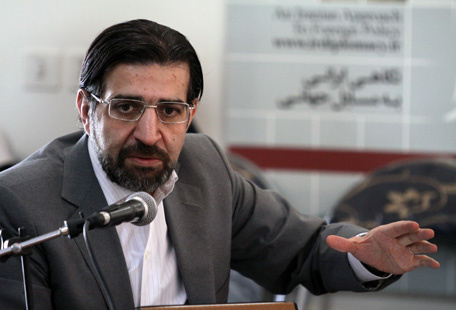Lack of Strategic Outlook Hurts Iran and the EU

Iran’s geographical, historical and natural features have provided it significant geopolitical, geostrategic and geoeconomic features: Iran possesses ten percent of the discovered oil resources of the world, and 15% of gas resources, placing it second after Russia. Iran’s location also makes it the most cost-effective energy transit route. Based on minimal estimations, 67% of the world’s energy demands are supplied in Iran’s periphery. These natural features, beside an ancient, rich civilization turn Iran into the natural nexus of the Middle East. They can also turn Iran into a strategic ally of the EU. Nonetheless, what we are witnessing is hostility and tension between Tehran and the European countries.
Why has such an alliance failed to materialize? Why has the West, especially Europe, overlooked Iran as a potential ally? Why have Iran and the European Union failed to serve mutual interests through a strategic framework?
These questions could be explained if we probe Tehran’s general attitude towards the EU: it seems that we lack a clear-cut approach towards relations with the EU and have not appreciated its role as an active global player. Instead, we have tended to deal with the European countries separately. On the other hand, Europe also suffers lack of a strategic look towards Iran and regards it merely as a part of the Middle East collection. Israel, Saudi Arabia and Egypt are more important for the Europeans.
In the meantime, misunderstandings and misperception have troubled the bilateral relations. Part of this misunderstanding can be attributed to Iran: once there are talks of strategic cooperation with Europe, just to be forgotten in a short while; and after speaking of detente and confidence-building, our diplomatic apparatus follows the discourse by criticizing ‘the arrogant Europeans’. Europe’s historical view towards Iran-US relations has been another part of the problem. Even during the days of Mohammad-Reza Pahlavi, Iran and European countries had no strategic relations. Diplomatic protocols may have been observed at their best, but there were no such thing as strategic relations.
In the meantime, Iran’s regional rivals also try to undermine bilateral ties between Tehran and Brussels. Turkey, Arab countries and Israel have always thrown the wrench at work when Iran and the EU have moved towards de-escalation of tension.
The trans-Atlantic relations have also cast their shadow over Iran’s relations with the Europeans: even a two-thousand billion dollar GDP for Iran could not steal the limelight from strong connection between Washington and the EU. Security, cultural and political issues also create further problems for strengthening the ties. Unfortunately, the fissure once formed between the US and the EU over invasion of Iraq has now disappeared because of Iran’ case. In 2003, Washington slighted its allies and the UN to conquer Iraq, and engendered crisis in its relations with Brussels. However, concerns about Iran have brought the two sides of Atlantic closer.
As I said, unstable policies towards Europe by Tehran have been part of the problem. Abruptly, we decide to shift towards China, Russia or Southeast Asia without weighing the power of countries in advance. I am not criticizing diplomatic manoeuvres aimed to thwart smart sanctions, but these countries could not satisfy our national interests in the long run.
When Mr. Ahmadinejad came to power in 2005, one of his first diplomatic remarks was criticism of the Europe and their ivory tower mentality. This was a blow against our relations with the EU which was moving in the path of confidence-building. The Holocaust comment also united those actors against expansion of Iran-EU ties. Most harmful of all was adding third parties to our negotiations with the European trio [Britain, France and Germany], which upset the game.
Today, Europe moves ahead of Washington in imposing sanctions on Iran, and that is the result of a flawed diplomacy. In the meantime, Europe is turning into a primary security threat for us. Of course it is true that the Americans hold more than seventy military bases in the region, with 250 thousand soldiers stretching from the Central Asian plains to Yemen, but there are more than three thousand French intelligence officers in the UAE, Kuwait, Qatar, Bahrain and Saudi Arabia, engaged in espionage operations for their country. Persian Gulf states have turned into strategic bases for the European intelligence agencies, and this calls for Tehran's vigilance. These days have also been the heyday of the EU’s military ties with regional states. Saudi Arabia and France are negotiating a 12-billion dollar arms deal, which will revive the military industry for Paris.

